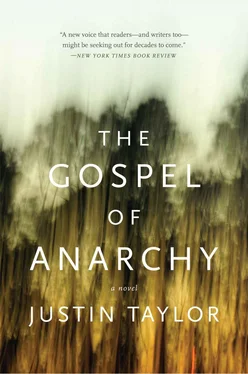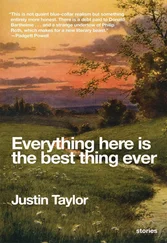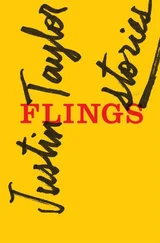Or was that heresy?
And if so was it necessarily a problem? Could heresy possibly be the point?
What was he trying, in the pressing weight of his absence, to show us and why were we failing so utterly to see ?
I could feel every eye upon me as I entered Clasen’s. Even the ones looking away had me in their attention. All the cliques and subcliques. Skinny girls, deathpale, with short black bangs and star tattoos; activist kids with red bandanas tied loose at their bearded necks. To some of the people here I was, no doubt, a legend. To others, doubtless too, a lunatic, part of the filthy insurgent faction that had forced a gaping split in the scene. Such limited vision, these people — no sense of gravity; no scope . But they were yet all of them right — paradox, faith, mystery — for Parker preached Right Action, even as before him Christ had foretold that brother would turn against brother, because the Word He had brought them was a sword.
I was hungry, but the guy working the counter wasn’t one of Ours. Later I would stick my hand in the garbage, see what some wasteful punks had failed to finish and likewise failed to save. These people who thought that they were better, who believed that they were already living the truth of their ideals!
I wove my way through the crowd to the back room, where there was a second and denser press. I was just in time for the headline act, who were working their way through the audience ahead of me, because Clasen’s had no greenroom, no backstage at all. I heard a guy in front of me tell his friend that the next band was called the Dust Biters, and that they played folk songs, but like differently.
The band was only two guys: a drummer and a guitar player. The drum kit was homemade, paint cans and gray plastic buckets; one golden Zildjian cymbal the only object in the setup serving the purpose for which it had been made. The singer wore clean black jeans and a black tee shirt, like mine and Parker’s. He was pasty-pale and had close-cropped brown hair. A generic, guy-looking guy. He seemed nervous and kept his gaze fixed on the acoustic-electric guitar he held, first because he was tuning it, and then after just to have somewhere to look. The drummer knocked off a few rolls, then did a rim shot. We, the crowd, hushed. The singer looked up at us, then turned back to face the drummer. If they exchanged words, we didn’t hear them. The singer nodded, then turned back to us, but seemed not to see us now. His lips brushed up against the microphone, and a woolly swoosh swept over the room.
“Fuck Bob Dylan,” he said quietly, then struck a chord so loud my knees actually buckled, and the drummer followed like hell on his heels and the room dissolved into a marvelous frenzy of limbs and sweat and noise, and my body was swept up and I felt freed of myself, like my soul was loose, and I rose up to the ceiling of that sweltering room and looked down at all of us, and saw my head whip and body flail as I moved toward the center of the gyre, where the big punks were spinning like planets and colliding like tectonic plates, I was crushed and nearly trampled but then quick hands slid under my arms and lifted me — I did not feel these things, I saw them —I went to my feet again, then higher still, dozens of hands on my body, lifting me till I rose to the top of the crowd and they held me aloft and passed me around, I was inches from the old pressed-tin ceiling, my arms thrust out like Christ’s and my eyes shut tight, rolling on the surface of the fray, and in the midst of this ecstasy I heard the words that the singer was singing—
In the Big Rock Candy Mountains
There’s a land that’s fair and bright
Where the handouts grow on bushes
And you sleep out every night
— he was screaming to be heard over the volcano of his own guitar, and behind him the drums were a war zone, but when I heard these words it was as if everything else fell away—
In the Big Rock Candy Mountains,
The jails are made of tin
And you can walk right out again,
As soon as they put you in
— and the singer and I were the only beings in existence, and there was nothing in creation but his voice singing and my ears hearing him, and the fact of our relating in this way was the fact of existence—
There ain’t no short-handled shovels,
No axes, saws nor picks,
I’m bound to stay
Where you sleep all day,
— and every word he sang felt true to me, but there was something devastating about this vision, where cops and jails and bosses and dogs — that awful and immortal they— still figured so powerfully, foregrounded even in utopia, in Heaven—
Where they hung the jerk
That invented work
In the Big Rock Candy Mountains
— and I realized with shuddering clarity that the song stirred my spirit in the same way that Holy things did, only the song was a liar because it lied about Heaven and therefore it was a disruption of Grace, the Devil’s work, a limit, and the hands that held me set me loose as the song finished—
I’ll see you all this coming fall
in the Big Rock Candy Mountains
— and I landed uneasily on my feet, fell to my knees, face hot — how many tears would I cry tonight? How much sorrow is required of one who would bear the weight of the fallen world? — and stood up screaming — I don’t know what I said, exactly — and pushing and shoving my way toward the front of the room, I needed to get to the microphone, had to tell them— what? I would know when I said it; Parker would speak through me and anything I said would be the right thing, but I had to get there — but people weren’t getting out of my way anymore and somebody hit me with a closed fist and I reacted without thinking and struck back at that person but I missed him and hit somebody else and the whole place erupted and I was being martyred and my message — I was still screaming — swallowed and then a bouncer stood over me — I was on the floor again, there was some blood in my eyes — and it was his hands alone that were lifting me up, then held my hands fast behind me, I was stumbling, being frog-marched, angry faces cursing and spitting at me and leaning in close so I could hear them (I saw Anchor, a face in the crowd) and they were calling me things and I screamed back at them but couldn’t hear, never knew, what it was that I said—
Then I was wandering the streets, bloody, alone as I had been on the night I was first saved. I could feel the punches I’d taken settling down from their fresh pain into an abiding soreness, bruises I felt no need to look at right away. Let Katy fret over them later. She surely would. My head was not clear so much as empty now; I felt hollowed out, a vessel, cored. Lord, Parker, fill me up with your righteousness , I thought. Then I thought that maybe the best thing would be to try and for a while think nothing at all.
Thirteenth Street, then Eleventh, Ninth, Eighth, First, Main. Side streets. Alleys. Everything is a way station. Turnarounds. Cul-de-sacs. Access roads. Churches. Dark storefronts, the post office, the offices of the Independent Florida Alligator newspaper, a record store, the Masonic Temple, a couple of banks. Frat bars lit up in screaming neon or a lone light in the back of Emiliano’s Italian restaurant by which the busboy mopped between tables now set only with their own flipped-over chairs. At the edge of the famous duck pond, where no fowl stirred on the face of the black water, and the bright bauble-moon was as clear below as above. Back on University Avenue — the lesbian bookstore, the drive-thru Taco Bell — where free shuttle buses provided by the school lurched up and down the street, to and from downtown, standing-room only and the aisles packed too with kids who sang fight songs and copped feels and filled that rolling drunk tank with their stinking puke. Construction sites. Angular skeletons of apartment buildings and planned communities, wired for broadband and satellite. The Life You Save, indeed , I thought, as I walked past it, headed vaguely back toward campus and my neighborhood but not yet ready to go home. Across the street from the plasma center’s strip mall was a rent-to-own furniture store. I walked over to it, drawn like a bug to a porch light, though the store and its sign were both dark. I felt like I was really seeing it for what it was, this wellspring of human misery, the working poor shackled to monthly payments, usurious rates, it was a suitable analog to the plasma center, and the intersection wanted only for a check-cashing store to complete the unholy trinity. I sat down on the sidewalk with my back against the white stone façade of Planned Furnishings, across the street from an empty lot marked only by a billboard that read CONSOLIDATED PROPERTIES. What could be said of a God that allowed such horror in the world?
Читать дальше












